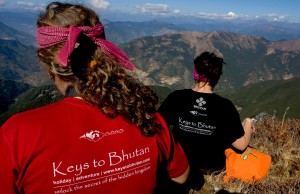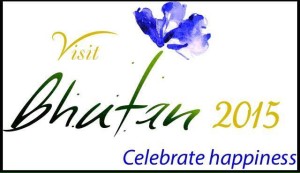Trekking in Bhutan only on designated routs and campsites
Tourism Council of Bhutan: Tour operators must use designated routes and campsites
In the wake of the recent controversy surrounding the Bumdra campsite above Taktshang in Paro, Tourism Council of Bhutan (TCB) officials clarified that the campsite is not among the approved trekking routes and campsites.
This means that tour operators cannot keep their guests at Bumdra campsite.
If tour operators are found using undesignated trekking routes and campsites, TCB officials said they would be penalised in line with the tourism regulations.
The tourism rules and regulations states that if tour operators are found using trekking routes and campsites that are not in the TCB’s published list, they will be slapped a fine of Nu 5,000 with a warning on the first instance. If caught again, tour operators will be penalised Nu 10,000 with a warning. On the third offense, the tour operator’s licence will be cancelled.
It was alleged that a permanent campsite was set up at Bumdra acquiring land on lease from the dratshang without following due processes. The company is also alleged to be charging exorbitant rates for the facilities at the campsite that was equipped with solar power and Internet connectivity.
TCB officials said the company providing trekking services at Bumdra is not registered with them. In such cases, officials said that tour operators will be answerable and not the service provider since tour operators and guides are under the TCB’s purview and not service providers.
TCB’s head of marketing and promotion division Damcho Rinzin said the list of trek routes and campsites are also reflected in the Tashel online system where tour operators must identify the names of campsites if tourists are going camping or trekking.
“All tour operators must be aware of the designated trekking routes and campsites,” he said, adding that the same applies for accommodation. “It is mandatory that all tourists are kept in tourist standard accommodation.”
Records with TCB show about 34 designated trekking routes and campsites across the country. There are about 57 TCB certified farm stays in the country with the highest in Wangduephodrang at 24. There are about 123 tourist standard hotels in the country.
Although known for its environment, Bhutan is rather seen as a cultural destination and comparatively receives less number of trekking tourists every year. Trekking in Bhutan is part of nature-based tourism activity with treks varying from one to 40 nights.
In 2014, trekking tourists constituted about 13 percent of the total international arrivals records with TCB show. About 68,081 international tourists visited Bhutan last year.
Trekking tourists increased in 2010 and 2011 after which it started to decline. In 2010, the country recorded 2,753 trekking tourists, which increased to 3,402 in 2011. However, it dropped to 3,165 in 2012 while in 2013 only about 2,943 of the total international arrivals were for trekking.
Tour operators said most tourists complained that trekking in Bhutan was not worth what they paid for given the garbage filled trails and lack of infrastructure or development along the routes.
Despite the same minimum daily tariff of USD 250 and 200 during the peak and lean season for both cultural and trekking tourists, tour operators said it was easier to sell cultural tour packages.
Contributed by Kuensel (Kinga Dema)


